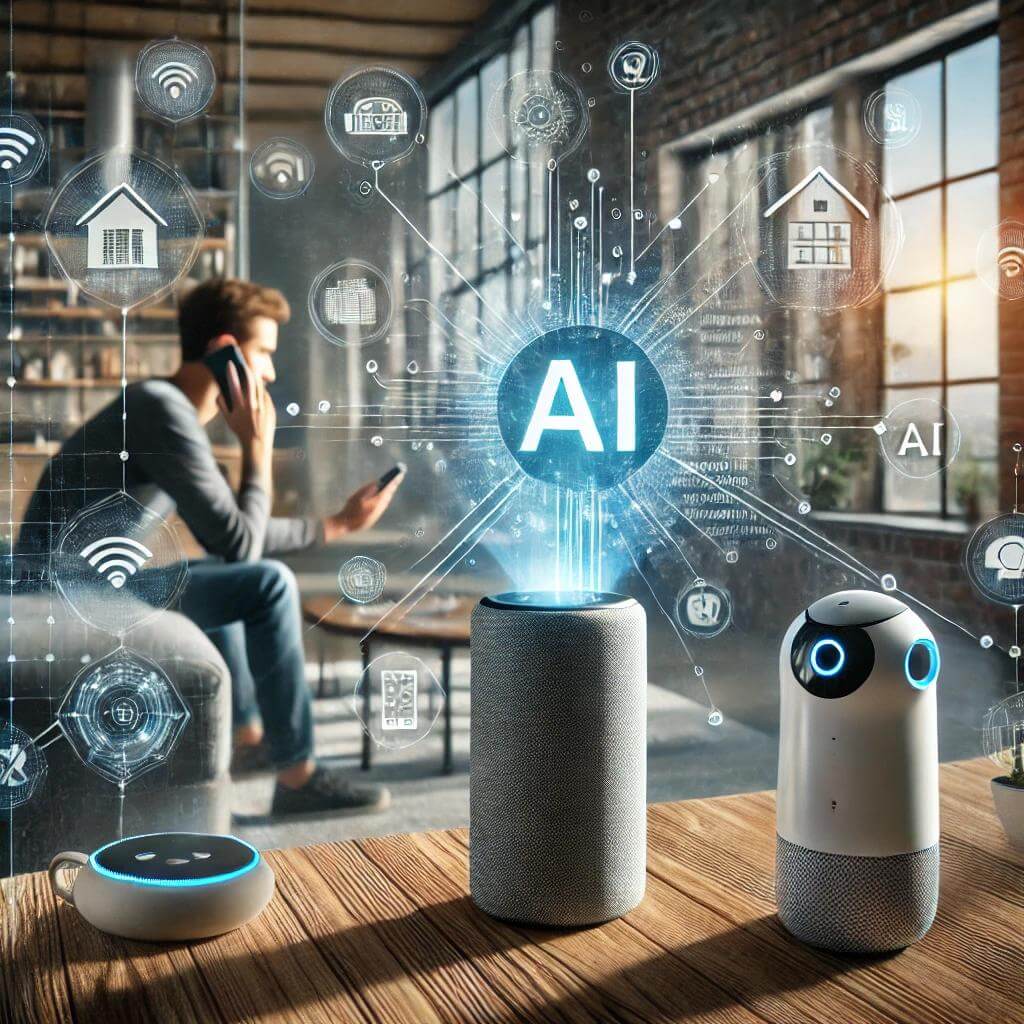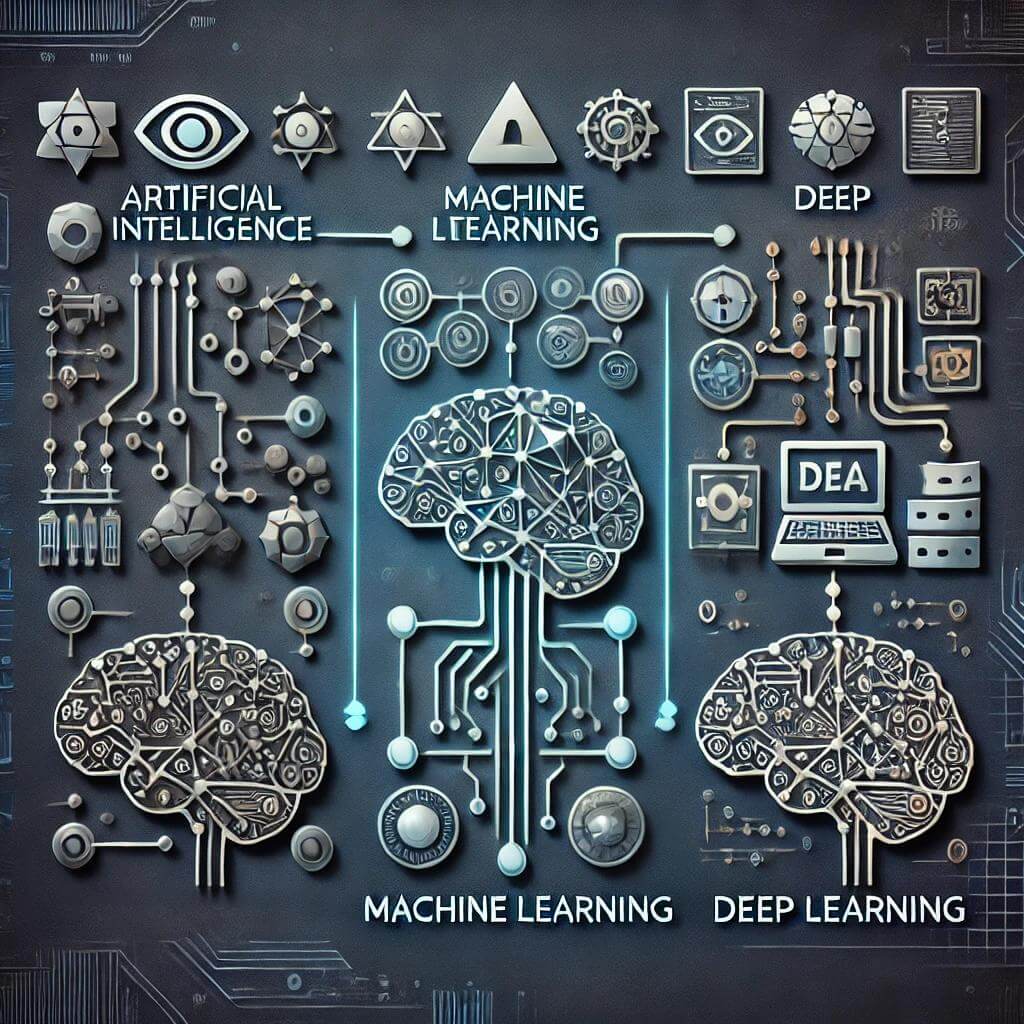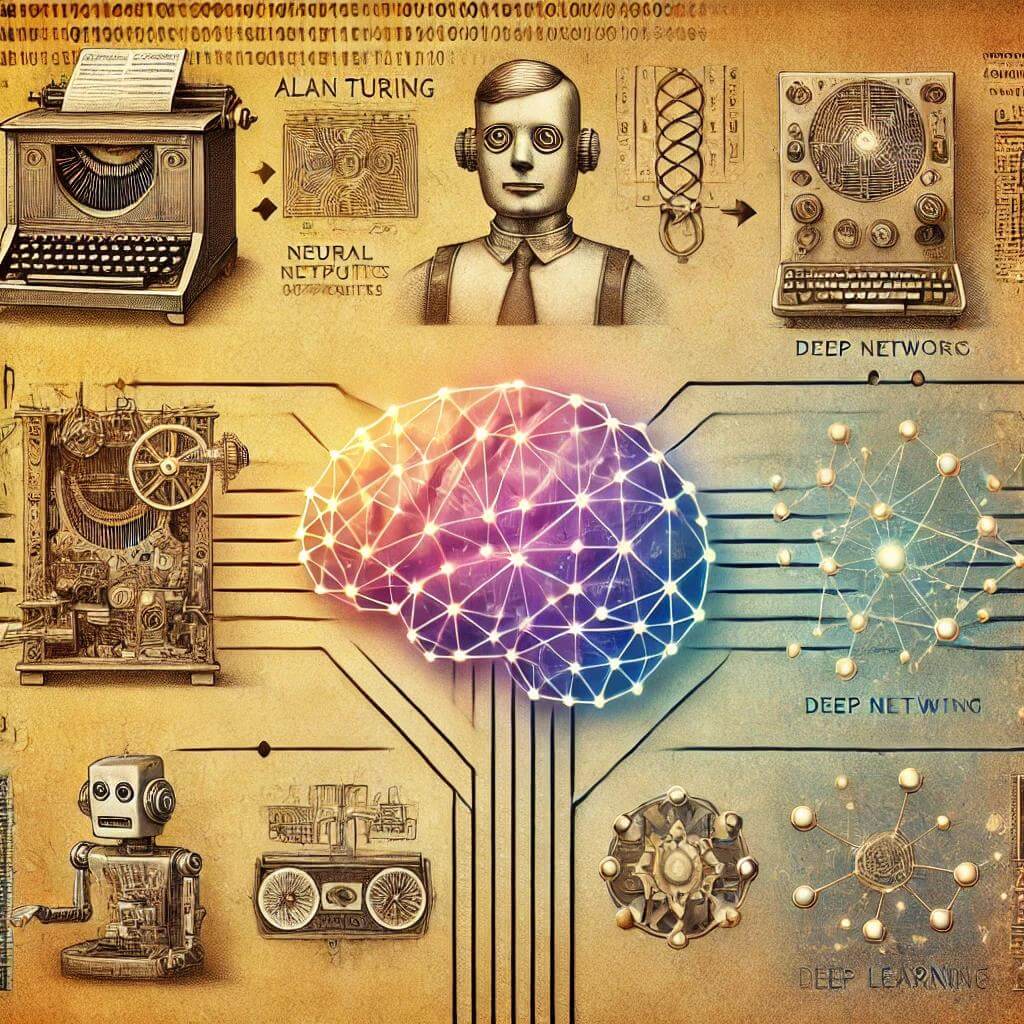AI in Everyday Life: From Phones to Smart Homes
Artificial Intelligence (AI) has become a fundamental part of our daily lives, whether we realize it or not. From waking up to a personalized morning routine on your smartphone to controlling home appliances with your voice, AI is seamlessly integrated into modern technology. In this article, we’ll explore how AI powers everyday tools like smartphones and smart homes, how it improves user experience, and how it simplifies tasks we once did manually.
AI in Smartphones: Your Digital Companion
Smartphones have evolved from basic communication devices into powerful AI-driven tools. Every time you use facial recognition to unlock your phone or ask your virtual assistant to check the weather, AI is at work in the background, making things easier and faster.
Virtual Assistants: Siri, Alexa, and Google Assistant
Virtual assistants are one of the most common uses of AI in smartphones. Whether you use Siri, Google Assistant, or Alexa, these AI-powered assistants help streamline your daily tasks.
- Hands-free assistance: You can set reminders, send texts, and ask for directions without touching your phone.
- Learning over time: These assistants get smarter the more you use them, learning your habits to offer more tailored responses.
- Natural interaction: With advanced natural language processing (NLP), virtual assistants can understand and respond to conversational speech, making interactions smoother.
Facial Recognition: Security Meets Convenience
Facial recognition, powered by deep learning algorithms, is another AI feature in smartphones that enhances both security and convenience. With a quick scan of your face, your phone is unlocked, using AI to compare your facial features to stored data in seconds.
Recommendation Algorithms: Tailoring Content to You
When you watch a movie on Netflix, listen to a playlist on Spotify, or shop on Amazon, AI is working behind the scenes to recommend content or products tailored to your preferences. These personalized experiences are powered by recommendation algorithms that analyze your behavior and suggest things you’re likely to enjoy.
How Recommendation Algorithms Work
AI algorithms analyze your interaction with content—what you watch, like, or click on—and predict what you’ll want next. The more you engage, the more accurate the suggestions become.
- Netflix: Recommends shows and movies based on your watch history.
- Spotify: Curates playlists based on your music tastes.
- Amazon: Suggests products similar to those you’ve browsed or purchased before.
AI-Powered Recommendation Systems
| Platform | AI Application | How it Works |
|---|---|---|
| Netflix | Recommends shows | Analyzes viewing history to suggest content |
| Spotify | Curated playlists | Learns music preferences to create personalized lists |
| Amazon | Product recommendations | Uses browsing and purchase data to suggest products |
Smart Homes: AI for Comfort and Convenience
AI isn’t just in your pocket—it’s in your home too. Smart home devices powered by AI make your living environment more efficient, comfortable, and even safer.
Smart Speakers and Home Assistants
Devices like Amazon Echo and Google Nest rely on AI to respond to voice commands, control devices, and even automate routines.
- Voice control: Adjust lighting, play music, and control the thermostat with simple voice commands.
- Learning routines: These devices get better at understanding your habits and preferences over time, personalizing your home environment accordingly.
Automating Daily Tasks
Imagine a home that wakes up with you. The coffee machine starts brewing as your smart speaker reads out the day’s schedule, and the thermostat adjusts to the perfect temperature—all without you lifting a finger. AI-powered home automation makes this possible.
How AI Simplifies Everyday Tasks
The goal of AI in everyday life is simple: to make things easier. Whether it’s handling routine tasks automatically or providing quick answers to complex questions, AI saves time and reduces the mental burden of daily chores.
AI-Powered Automation
AI-powered automation allows you to streamline repetitive tasks. For example, smart home systems can lock doors, adjust lighting, and even notify you of security concerns. This level of automation gives you peace of mind, knowing your home is operating efficiently.
Personalized Convenience
AI makes life more convenient by learning your habits and preferences. Whether it’s curating your music, predicting your next Netflix binge, or adjusting your home’s environment, AI tailors its actions to suit you, reducing the need for constant manual input.
The Future of AI in Everyday Life
As AI continues to evolve, its impact on our daily lives will only increase. We’re already seeing AI move into areas like healthcare, transportation, and city planning. In the near future, AI might even manage entire communities through smart infrastructure, making life even more efficient and interconnected.




Post Comment